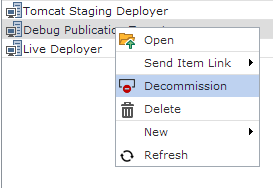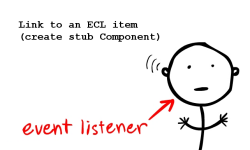A brief history of the XSLT Mediator for SDL Tridion
Back in 2007/08, Tridion introduced a modular template framework called Compound Templates with R5.3. At the time you could use a combination of Template Building Blocks written in Dreamweaver (DWTs), C# Fragments and .NET assemblies to manipulate items in a package and add them to the output of your Compound Template.
This was a giant leap forward from what are now called legacy templates (VBScript, JScript and classic XSLT Component Templates) in SDL Tridion 2013. The concept of Compound Templates remains strong today, and is the primary way that developers render their content.
One of the key features of the template framework, was that it could be extended to support additional programming languages through the creation of Mediators. Over the years as developers got frustrated with the out-of-the-box mediators (C# Fragments, DWT and .NET assemblies), a number of community built Mediators have reared their heads, including ones for XSLT, Razor and Java. Continue reading
 With the release of SDL Tridion 2013 SP1, we get a lot of new functionality. One of the interesting features I found was the ability to decommission a Publication Target. This feature is added to the Core Service, and currently not directly available from the UI. Which sounded like a good exercise to make a UI extension, with which you can call this new method.
With the release of SDL Tridion 2013 SP1, we get a lot of new functionality. One of the interesting features I found was the ability to decommission a Publication Target. This feature is added to the Core Service, and currently not directly available from the UI. Which sounded like a good exercise to make a UI extension, with which you can call this new method. December is the time to look back, and if you have been doing a sprint of 365 days, now is the time to start to think about the retrospective. That is exactly what the MVP Selection Panel is doing right now. To select the new MVP’s for the
December is the time to look back, and if you have been doing a sprint of 365 days, now is the time to start to think about the retrospective. That is exactly what the MVP Selection Panel is doing right now. To select the new MVP’s for the  In my
In my  During the
During the 
